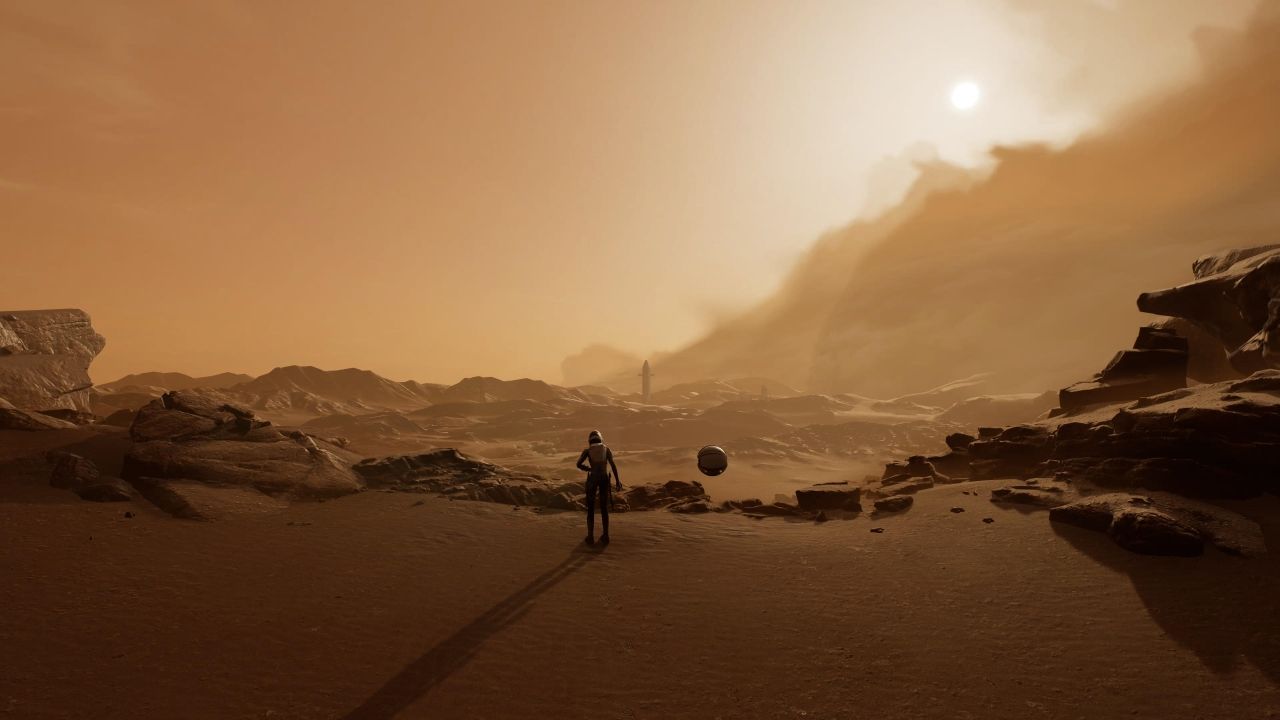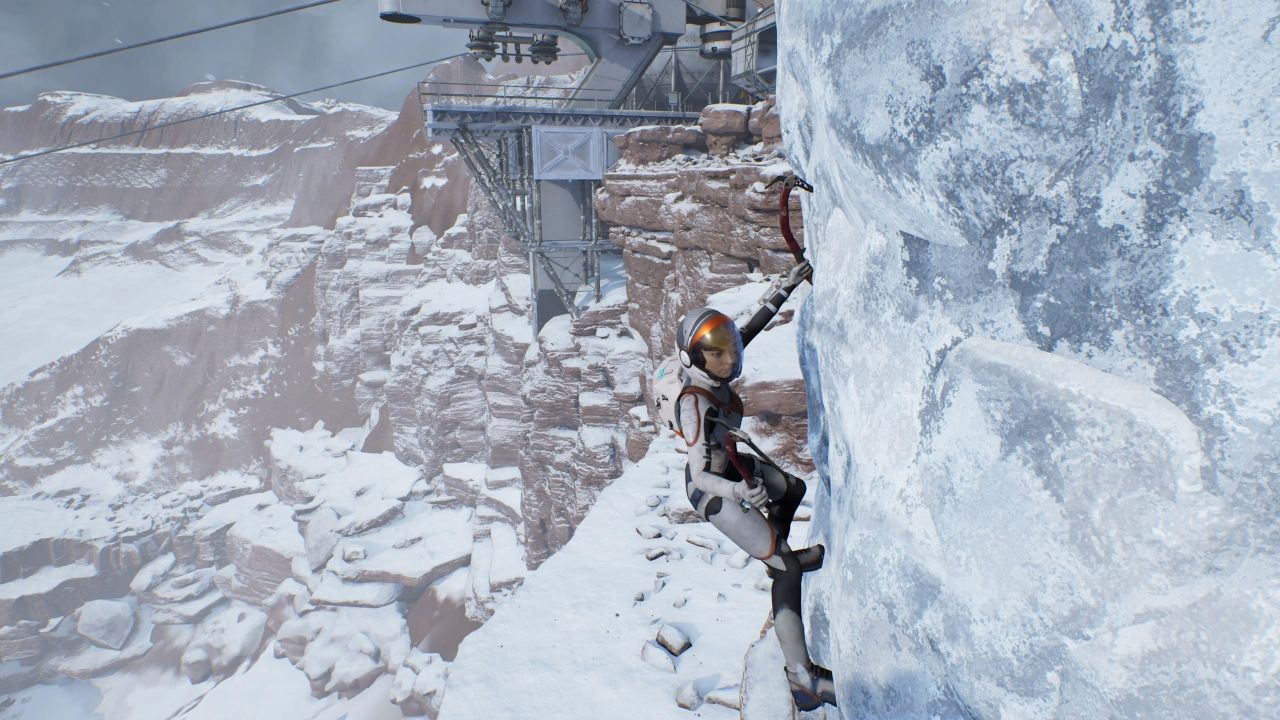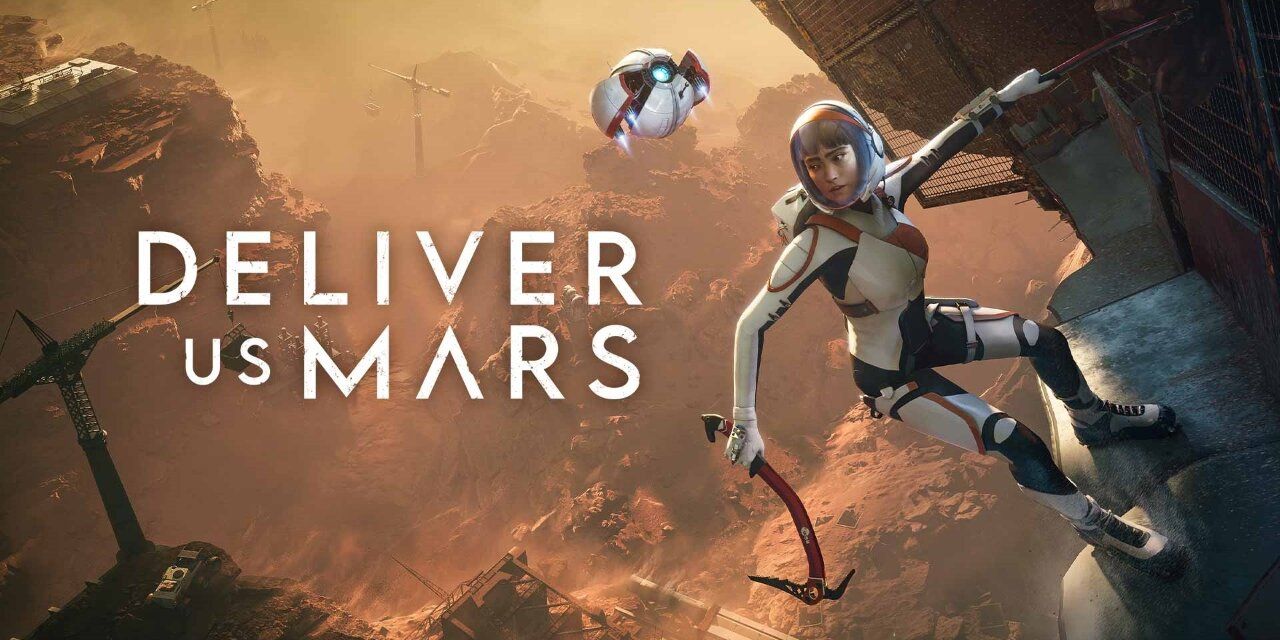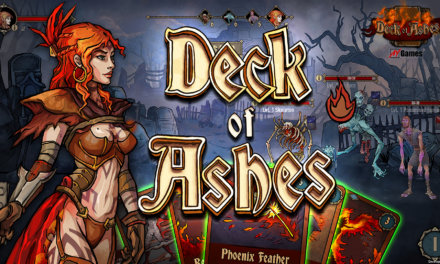“It was humanity that destroyed the earth…”
Hailing from The Netherlands is indie studio: Keoken Interactive, with the follow up to their 2018 award winning sci-fi adventure: Deliver Us The Moon, with their recently released: Deliver Us Mars, which is set 10 years after it’s predecessor, showcasing how further along humanity has come in the face of it’s own extinction. Featuring a stellar narrative (no pun intended) alongside a strong environmental message, Deliver Us Mars is a one-of-a-kind sci-fi adventure that makes you face the poignant and harrowing reality of our own fate as a species in the face of irreversible climate change and resource depletion. Having released for all major platforms on February 2nd 2023, I’ll be covering my time spent with the PlayStation 5 version of the game, going over the good and bad, whilst ultimately covering whether it’s worth your time and money at the £24.99 asking price.
– Price obtained from the UK PSN Store at the time of writing this review (12/02/2023).
From Galileo Galilei in 1610 discovering craters on the face of the Moon, to children fantasising about becoming an astronaut, to simply looking up at the night sky; mankind’s fascination with the stars is one that has been fuelled by mystery and intrigue for a millenia, aching to learn what resides beyond the confines of our solar system. Science Fiction (in all its many iterations) has always been a corridor into what this might look like, offering fantastical visions through the likes of generational franchises such as Star Wars or more grounded representations such as Stanley Kubrick’s explorative epic: 2001: A Space Oddesey (1968). Inspired by movies such as these and the same level of curiosity and passion that their grandfather had for Astronomy, the Deetman Brothers of Keoken Interactive used this as the primary inspiration for their maiden voyage as an indie studio: Deliver Us The Moon (2018), which was a mind-opening, explorative piece of science fiction when it released, offering a glimpse of the fate of humanity hanging in the balance amidst the backdrop of earth’s natural resources being depleted (which is a scenario that could become a reality in years to come). The game was an instant cult-classic when it launched in 2018, going on to win awards for ‘best sound design’ and ‘outstanding game’ from various sources, with hype for a sequel brewing in the background.
Deliver Us Mars is that sequel, and follows on from the narrative of Deliver Us The Moon (albeit set 10 years later) and the events of Operation Fortuna. The game pilots you in control of Kathy Johanson (the daughter of MPT developer: Isaac Johanson) an up-and-coming engineer and astronaut of the WSA (World Space Agency) who is placed on a ride or die mission with her sister Claire to recover technology vital to the survival of the planet. The technology in question are three megaships known as Arks, which contain advanced technology for efficiently moderating energy, sustaining an eco-system, and simultaneously creating oxygen; all the tools for creating a sustainable future for the planet. Having been commandeered by a splinter group known as Outward, the Arks were used to spearhead a colony towards Mars in the hope of creating a new sustainable home world and fresh start for humanity, sealing Earth’s fate in the process. Kathy’s father: Isaac was part of the Splinter group that commandeered the Arks, so the mission is far more personal than to simply recover the Arks by any means possible, despite the situation on earth reaching a breaking point, with the Arks themselves being the only salvation to save the denizens of the planet from their impending doom. Both games in the Deliver Us franchise (under the guise of Science Fiction) paint a cautionary tale for what is potentially coming for ourselves as a species in the face of the current energy crisis alongside global warming, which is dangerously close to passing the point of no return.

From a narrative perspective, Deliver Us Mars is top-tier in terms of its writing and overall message. Kathy’s character is one that is extremely likable from the get go; a young, vibrant woman full of enthusiasm and drive in a world where the overall situation is pretty bleak and dire. The expedition to Mars is one that is both a personal journey and one of survival, with several points in the story offering conflicting points of view for Kathy, making her journey one of the more memorable (and heart-breaking) ventures I’ve experienced in recent years. The narrative structure is one that is a nice mix of cinematic cutscenes and environmental cues, both working in tandem to flesh out the lore of the world as well as the lifestyles and motivations of the people that exist within it. The story is spread across nine chapters and will set you back around roughly an hour each depending on if you take your time to explore, or get stuck on some of the game’s puzzles (some of which are just downright pace breaking). Deliver Us Mars plays very much like its predecessor in the respect that the main gameplay element is the use of environmental puzzles, which sees Kathy restoring power, cutting away debris, and using her robot companion (akin to your Ghost from the Destiny franchise) to reach seemingly hard to reach spaces. The puzzles are largely there as a gameplay element to get you to use the old grey matter between story segments, and are okay for the most part, except for when they’re not.
If there’s one thing that Deliver Us Mars does poorly, it’s explaining some of its more archaic controls. One example is the use of Kathy’s axes, which is a well-designed gameplay element for the most part that allows you to traverse some of the game’s more vertical sections. The gripe I have is with a particular environmental puzzle in chapter six (alongside others, as one frustrated streamer was the solution I found to solving it) which sees you scaling the walls of an ice cave, with one section requiring you to jump backwards and quickly snag yourself into the ice wall behind, however the game at no point (even in the tutorial that showcases the mechanic for the first time) explains how to jump backwards, forcing you to pull yourself out of the game and google the controls. This happens throughout the game, with key items for solving puzzles floating under the map, Kathy herself getting stuck in doorways with no way to escape other than closing the application and loading your previous save etc. which are just two examples of stuff that drags the whole experience down. In addition to the games puzzles there are other sections of note, such as using the Rover to travel across mars (which feels oddly similar to the Mako from the OG Mass Effect) and Zero G sections reminiscent of Dead Space (albeit a lot less polished).

From a visual and performance perspective, Deliver Us Mars is pretty standard fare, and despite being marketed as a next-gen game the visuals are somewhat average, akin to Life is Strange, when it first released on PlayStation 3. The character models and animations are somewhat stiff during moment to moment gameplay, gaining some fluidity when it comes to cutscenes; there’s also an issue with hair, with most male characters looking like they’ve had it drawn on with a sharpie. In terms of resolution and performance, the PS5 comes in at 2160p with a somewhat unstable 60fps, which turns into chop city in some of the games larger areas, with texture pop ins and screen tears to boot. I have read since finishing the game, that these issues may be due to the game’s ray tracing which can be turned off in the menu. Despite the frame rate and character models being somewhat janky, the game holds down some absolutely stunning vistas of Mars, which makes the game’s more open-ended stages an aesthetic treat to explore. Overall, the game’s aesthetics may not be a turn off for some people, as the narrative more than makes up for any shortfalls. If you’re not one to get too hung up on graphics and enjoy sci-fi specifically set in space, then Deliver Us Mars might be the game for you, as it holds down one of the more thought-provoking narratives I’ve played in a game to date. Definitely worth nabbing at £24.99 for the game’s story alone despite some pretty annoying bugs, as Ol’ Seneca once said himself: Ad Astra Per Aspera…
A PlayStation 5 review code was provided by Frontier.







